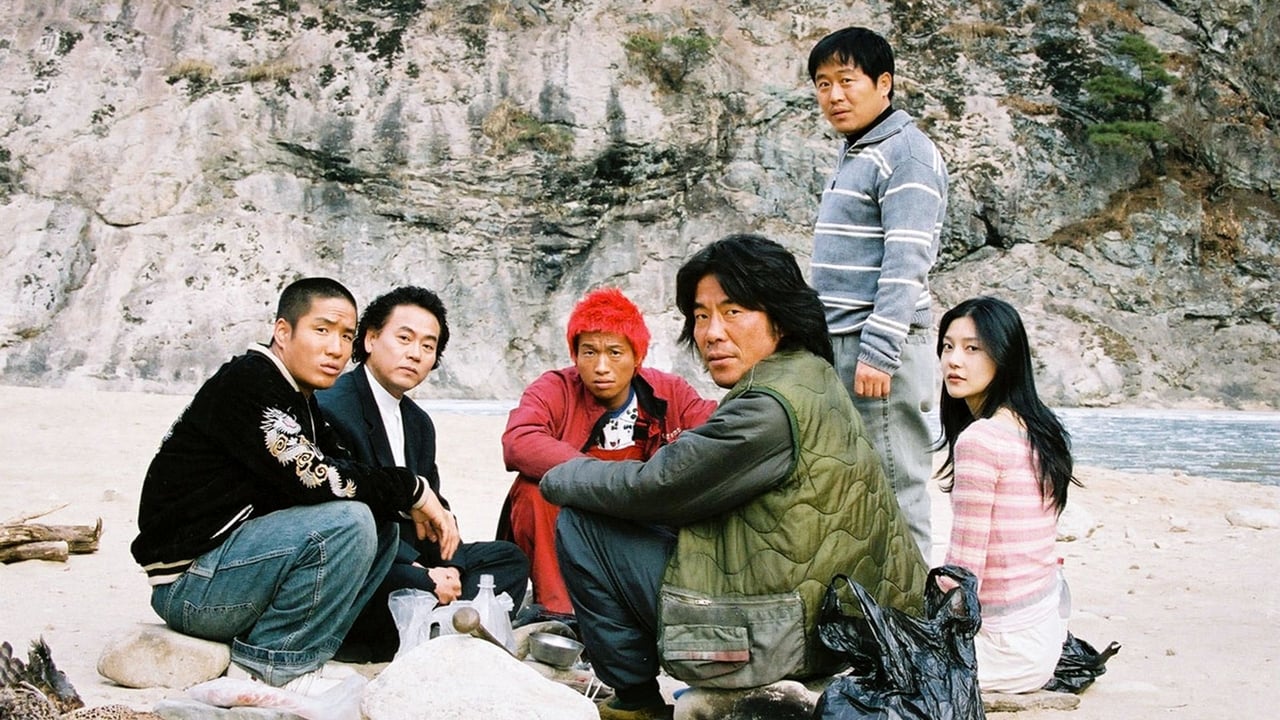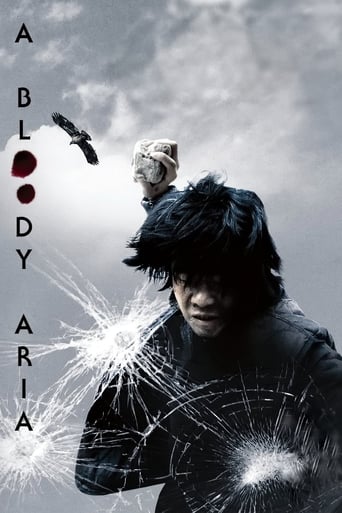



Very very predictable, including the post credit scene !!!
View MoreThis is How Movies Should Be Made
People are voting emotionally.
if their story seems completely bonkers, almost like a feverish work of fiction, you ain't heard nothing yet.
View MoreOne might think that soon a time will come for Asian cinema to reassess its trademark Extreme label. Or that a new approximation of this quality will emerge on the receiving it, critical end. A Bloody Aria is not yet at this stage, it applies violence with straightforward honesty and typical for the Korean cinema consideration of social themes. And it never really discusses implications that emerge. It basks in social relevance that sadly remains restricted to its Korean context. And despite handling some more general themes- cyclical violence, bullying etc. it never unveils itself as a film with a broader appeal. Most likely then, it will connect with enthusiasts of the Korean cinema that will find some stimuli in observing how portrayal of youth degenerated since seminal Attack the Gas Station (Kim Sang-Jin, 1999). This particular film makes for a disturbing comparison of how the violence has escalated in Korea's national cinema, to accommodate both the expectations of the market and relevant changes in the society.To equal extent A Bloody Aria can be dissected together with British Eden Lake (Watkins, 2008) or French They (Moreau, Palud, 2006). It emerges as a film less entertaining and more restrained but ultimately more wholeheartedly committed to the comment it makes. Tempo is interrupted by lengthy conversations that intentionally build up the threat but ultimately fail to do so. No sustained suspense ever emerges, consumed by the ambiguity of the film's villains. It collapses as a thriller as it struggles to maintain its, overriding genre schematics, devotion to keen observation of the intensifying power struggle. It consistently reminds the audience to look past the physical facades and our expectations build upon impeccable acting of the entire cast. Unfortunately, unlike many Korean efforts from the recent past Won Shin-yeon's film fails to captivate the audience with any particular sense of style. Mobile, quasi documentary camera is dull and where one would expect some visual flair it serves images that are unimpressive and (perhaps deliberately) annoyingly overexposed. Disconnection of imagery, themes and musical inclinations contained in the title are disappointing since more grounded sense of style could reward the audience for awkward pacing.Verdict: Korean Funny Games it isn't. Neither is it a particularly explicit example of Asian extreme. It's a slow burning amalgam of familiar social and cinematic motifs that manages however to radiate with some unique identity. Not as relevant outside of its national targets of critique it is still interesting to watch for Won Shin-yeon's own take on material recognizable from both Haneke and realist horror in the spirit of Deliverance.
View MoreWell I enjoyed the first ten minutes, and that's the only positive I can take away from this film. It's Korean Vengeance cinema fused with Hollywood style Hillbilly fare, with the usual unoriginal plot that can be summed up in one sentence. A music professor and his female student on their way to Seoul get lost and stranded in the countryside; enter four crazy country bumpkins and yeah you pretty much know the rest. On the plus side, the photography's excellent, and the performances are convincing. If you're into films like Hostel and Cabin Fever then you may like this. But if your new to Korean cinema, don't start here visit Old Boy.
View More"Director Won takes a refreshingly different approach to what could have been a standard tale of city folks menaced by crazy bumpkins, mainly in that he serves up an off-key set of characters, none of whom really fit into the traditional roles viewers are used to. The film does not feature an obvious protagonist, or even an anti-hero, and although some of the characters are more vicious than others, it gradually becomes clear that all are victims in one way or another. Despite this, the characters are well drawn, and the viewer learns about them through a series of revelations which unfold in a surprising, though believable manner.None of the relationships in the film are straightforward, with some of them emerging as being very twisted, and through this, Won ventures into some fairly complex moral territory, and explores the effects of institutions such as the army. The film is chiefly concerned with themes of bullying, which it actually deals with in quite a subtle manner and on several levels, dealing with both the aggressors and victims in a fluid way which eschews stereotyping or easy answers. The lines between right and wrong are not so much blurred as thrown out of the window, as the characters gradually become more and more animalistic, yet at the same time, somehow more human, giving the proceedings an almost tragic feel."
View MoreThe antihero brings a pretty girl to a secluded location with devious intentions. The girl refuses him and gets away from the coward. However, the locals in the area converges around them, and troubles follow. These troubles resolves itself in a twisting manner and doesn't let up.Though much will be lost in translation, the movie is worth seeing for a number of reasons. the characters are truly interesting and every actor is so skilled that you hardly notice them. Story is not only good, but well told. Foreshadowing lets the audience know what's coming next, but you don't know what's going to happen next.The setting is in wide open spaces,but no one can hardly exhale without discomfort. There is no hero, but victims and transgressors. Innocence is lost, lives are changed(except for the antihero), and bodies are broken.If you want a simpler explanation, it's a modernized Deliverance with a Korean twist.
View More